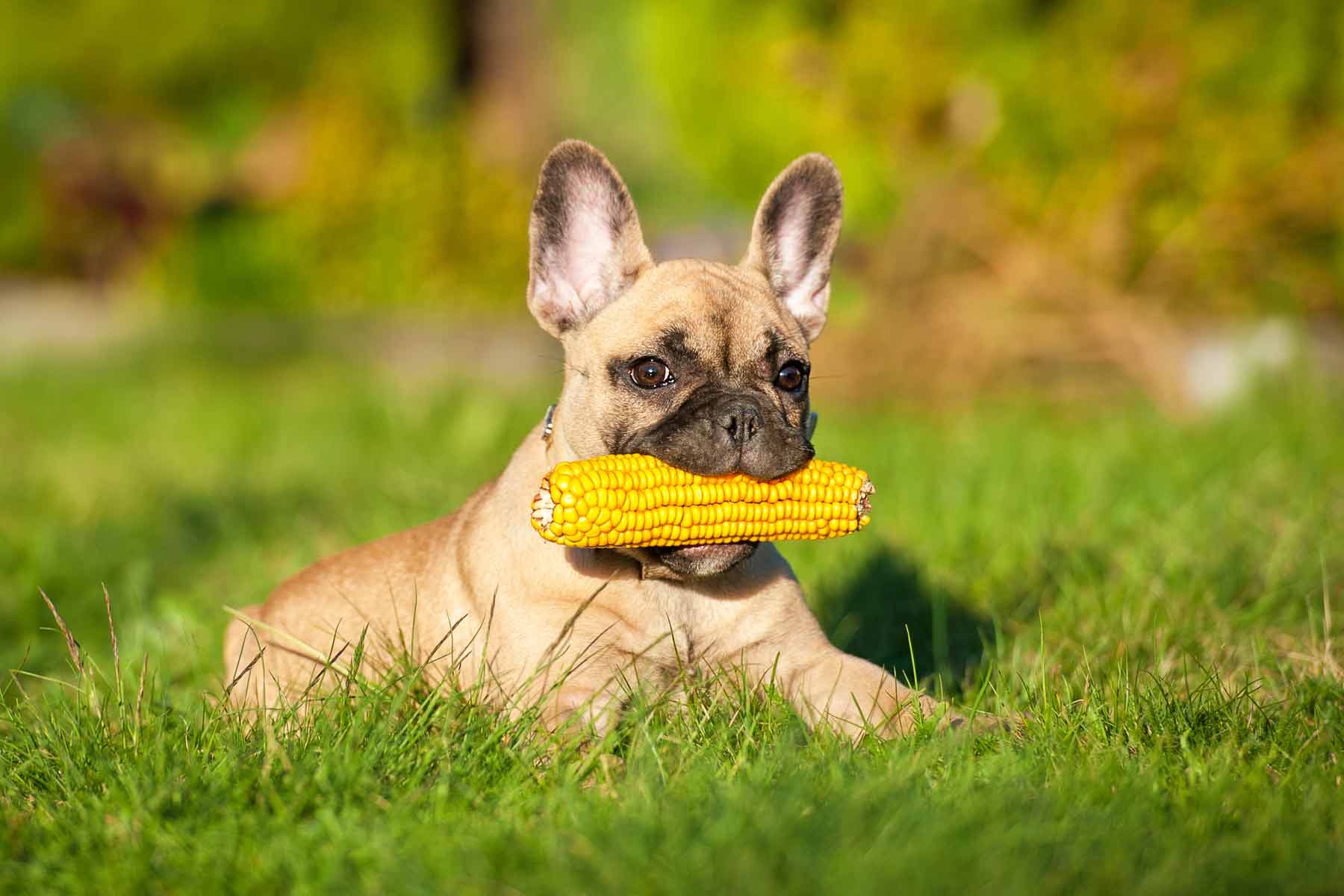
Can dogs eat corn?
Can dogs eat corn?
Can dogs have corn?
Yes, dogs can eat corn! Corn is safe for dogs when served properly and in moderation. It's not only safe but can be a nutritious addition to your dog's diet, providing various health benefits. However, there are important precautions to take when feeding corn to your furry friend.
According to veterinary experts, less than 4% of dogs have a corn allergy, making it a safe option for most pups.
Is corn good for dogs?
Many commercial dog foods actually contain corn for its nutritional benefits, which might surprise some pet owners who view it as merely a "filler." Corn contains several nutrients that can benefit your dog's health when consumed as part of a balanced diet.
It's a good source of protein, carbohydrates, and essential fatty acids. Corn also contains:
Dietary fiber that promotes gut health
Linoleic acid, an essential omega-6 fatty acid
Carotenoids lutein and zeaxanthin that support eye health
Vitamin C, an antioxidant that protects cells from damage
Various minerals that contribute to overall health
However, not all forms of corn are created equal when it comes to your dog's diet. The way corn is prepared and served can make a significant difference in how safe and beneficial it is for your four-legged companion.
Can dogs eat corn cobs?
No, dogs should never eat corn cobs. This is extremely dangerous and potentially life-threatening. Corn cobs pose serious risks including:
Choking hazards
Intestinal blockages requiring emergency surgery
Damage to the digestive tract
Even small pieces of corn cob can cause serious health problems. Dogs cannot digest the cob, which can lead to intestinal obstructions. If your dog has eaten a corn cob, contact your veterinarian immediately.
Can dogs eat grits?
Plain, cooked grits without added salt, butter, or seasonings can be safe for dogs in small amounts. However, they don't offer significant nutritional benefits compared to whole corn kernels.
If you choose to share grits with your dog, keep portions very small and ensure they're completely plain. Avoid instant grits that may contain additives or high sodium levels.
Can dogs eat corn tortillas?
Corn tortillas don't provide substantial nutritional benefits for dogs, so they aren't the best treat option, but if your furry friend nibbles one, it's not cause for panic. In very small amounts on occasion, plain corn tortillas or corn chips that are free from salt, spices, or other additives are not likely to harm your dog.
Can dogs eat cornbread?
Cornbread is not recommended for dogs. Most cornbread recipes contain ingredients that aren't good for dogs, including:
Sugar
Butter or oil
Salt
Sometimes milk or other dairy products
Sometimes artificial sweeteners like xylitol, which is toxic to dogs
These ingredients can cause digestive upset and be harmful to your pup in several ways. If you must share a tiny piece, ensure it's plain, xylitol-free, and given very rarely.
Can dogs eat canned corn?
Dogs can eat plain canned corn in moderation, but fresh or frozen corn is a better option. When choosing canned corn:
Select varieties with no added salt or sugar.
Rinse thoroughly to remove excess sodium.
Avoid creamed corn which contains ingredients like butter and cream that can cause digestive upset.
Always check the label for additional ingredients that might be harmful to your dog.
How to safely feed corn for your dog
If you're considering sharing corn with your canine companion, preparation matters. Plain, cooked corn kernels removed from the cob are the safest option. Never add butter, salt, spices, or other seasonings that might upset your dog's stomach or even be harmful.
Always make sure the corn is thoroughly cooked (and cooled) to make it easier to digest. Raw corn can be difficult for dogs to break down properly and may cause digestive discomfort or even blockages in some cases.
How much corn can dogs eat?
Treats, including corn, should make up no more than 10% of your dog's daily caloric intake. For most dogs, this means:
Small dogs: 1 to 2 tablespoons of corn occasionally
Medium to large dogs: A small handful of kernels
Start with smaller amounts and monitor your dog for any digestive issues. If you notice loose stools, gas, or other signs of discomfort, reduce the amount or discontinue feeding corn.

Other safe foods
Besides corn, there are many other safe human foods that can be healthy treats for your dog, including:
Lean meats like chicken, turkey, and beef (skinless, deboned, cooked, and unseasoned)
Fresh vegetables such as carrots, green beans, and broccoli
Fruits including apple slices, watermelon (seedless), and blueberries
Plain cooked white rice
Pumpkin (plain, not pie filling)
Sweet potatoes (cooked)
Always introduce new foods gradually and in small amounts to monitor for any adverse reactions. Remember that while these foods are safe, your dog's primary nutrition should come from high-quality dog food formulated to meet their specific nutritional needs.